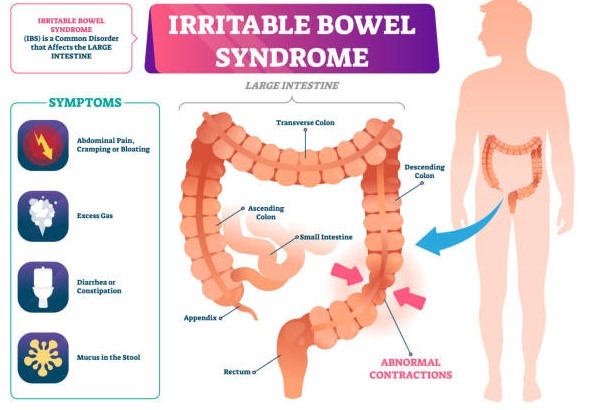Irritable Bowel Syndrome: Causes, Symptoms, and Treatment
Explore irritable bowel syndrome: its causes, symptoms, and effective treatment options. Learn how to manage and improve your digestive health. #IrritableBowelSyndrome


When it comes to gastrointestinal disorders, one that affects millions of people worldwide is Irritable Bowel Syndrome (IBS). This chronic condition can cause significant discomfort and disruption to daily life. In this article, we will explore the causes, symptoms, and treatment options for IBS.
Causes of Irritable Bowel Syndrome
The exact cause of IBS is still unknown, but several factors may contribute to its development. These include:
Abnormalities in the digestive system: Individuals with IBS may have a more sensitive colon, which can lead to stronger contractions or spasms.
Changes in gut bacteria: An imbalance in the gut microbiota can affect the functioning of the digestive system.
Food sensitivities: Certain foods, such as dairy products, caffeine, or high-fat foods, can trigger IBS symptoms in some individuals.
Stress and mental health: Emotional stress and anxiety can worsen IBS symptoms, although they do not directly cause the condition.
Symptoms of Irritable Bowel Syndrome
IBS can manifest in various ways, and the symptoms may vary from person to person. Some common symptoms include:
Abdominal pain and cramping: This is one of the primary symptoms of IBS and is often relieved after a bowel movement.
Changes in bowel habits: Individuals with IBS may experience diarrhea, constipation, or a combination of both.
Bloating and gas: Excessive gas and bloating are common complaints in individuals with IBS.
Food intolerances: Certain foods may trigger IBS symptoms, causing discomfort and digestive distress.
Fatigue and sleep disturbances: Many people with IBS report feeling tired and experiencing difficulties with sleep.
Treatment Options for Irritable Bowel Syndrome
While there is no cure for IBS, several treatment options can help manage the symptoms and improve quality of life:
Dietary changes: Identifying and avoiding trigger foods can alleviate symptoms. A high-fiber diet and drinking plenty of water are often recommended.
Stress management: Techniques such as relaxation exercises, meditation, and counseling can help reduce stress levels and improve symptoms.
Medications: Over-the-counter antidiarrheal drugs, laxatives, and antispasmodics may provide relief for specific symptoms.
Probiotics: These beneficial bacteria can help restore the balance of gut microbiota and improve digestive health.
Alternative therapies: Some individuals find relief through acupuncture, herbal remedies, or hypnotherapy, although further research is needed to support their effectiveness.
It is crucial for individuals experiencing symptoms of IBS to consult with a healthcare professional for an accurate diagnosis and appropriate treatment plan. Each person's experience with IBS is unique, and a tailored approach is necessary for effective management.
In conclusion, Irritable Bowel Syndrome is a chronic condition that affects the digestive system. While the exact cause is unknown, factors such as abnormalities in the digestive system, changes in gut bacteria, food sensitivities, and stress may contribute to its development. The symptoms of IBS can vary but commonly include abdominal pain, changes in bowel habits, bloating, and fatigue. Although there is no cure for IBS, various treatment options, including dietary changes, stress management, medications, probiotics, and alternative therapies, can help manage the symptoms and improve quality of life.
